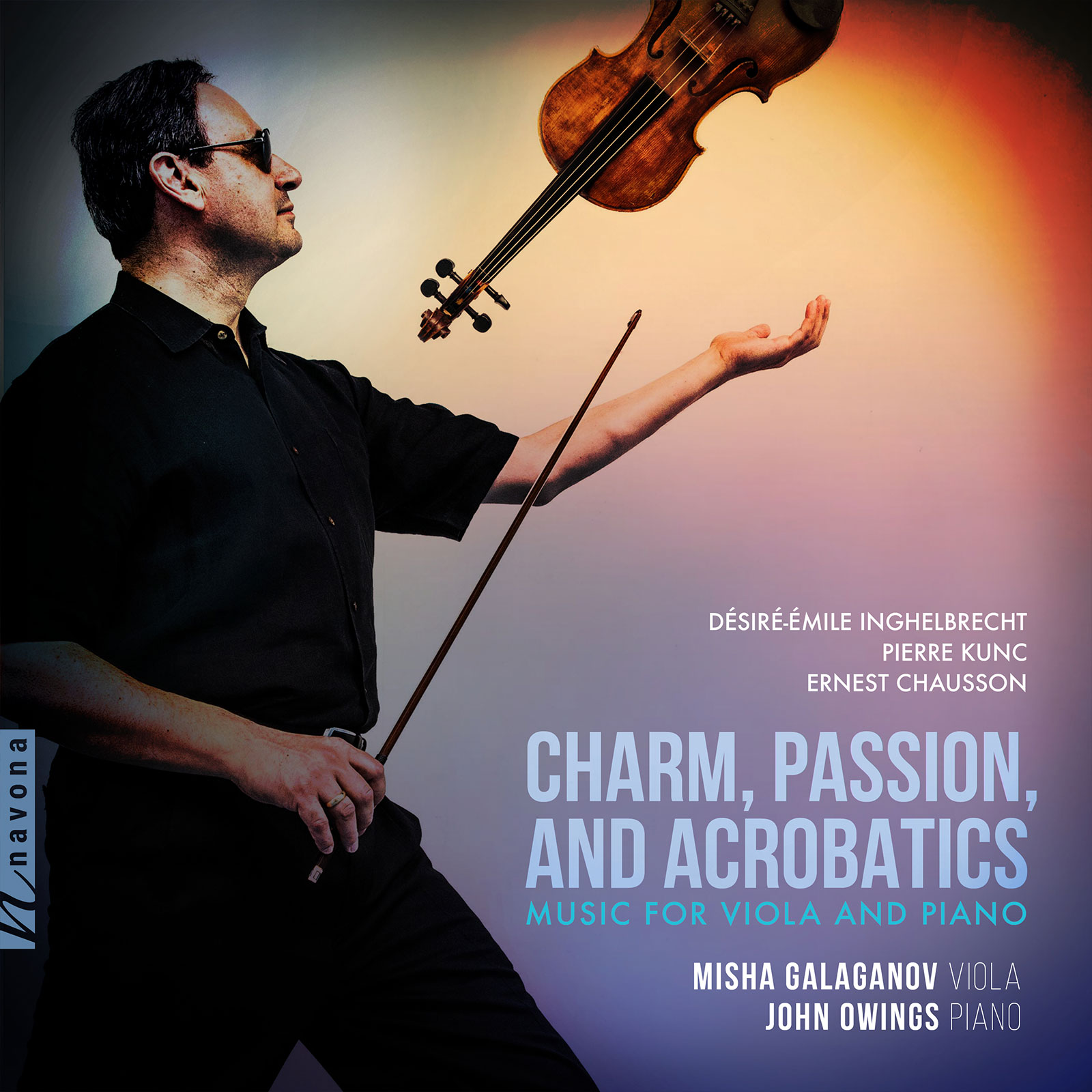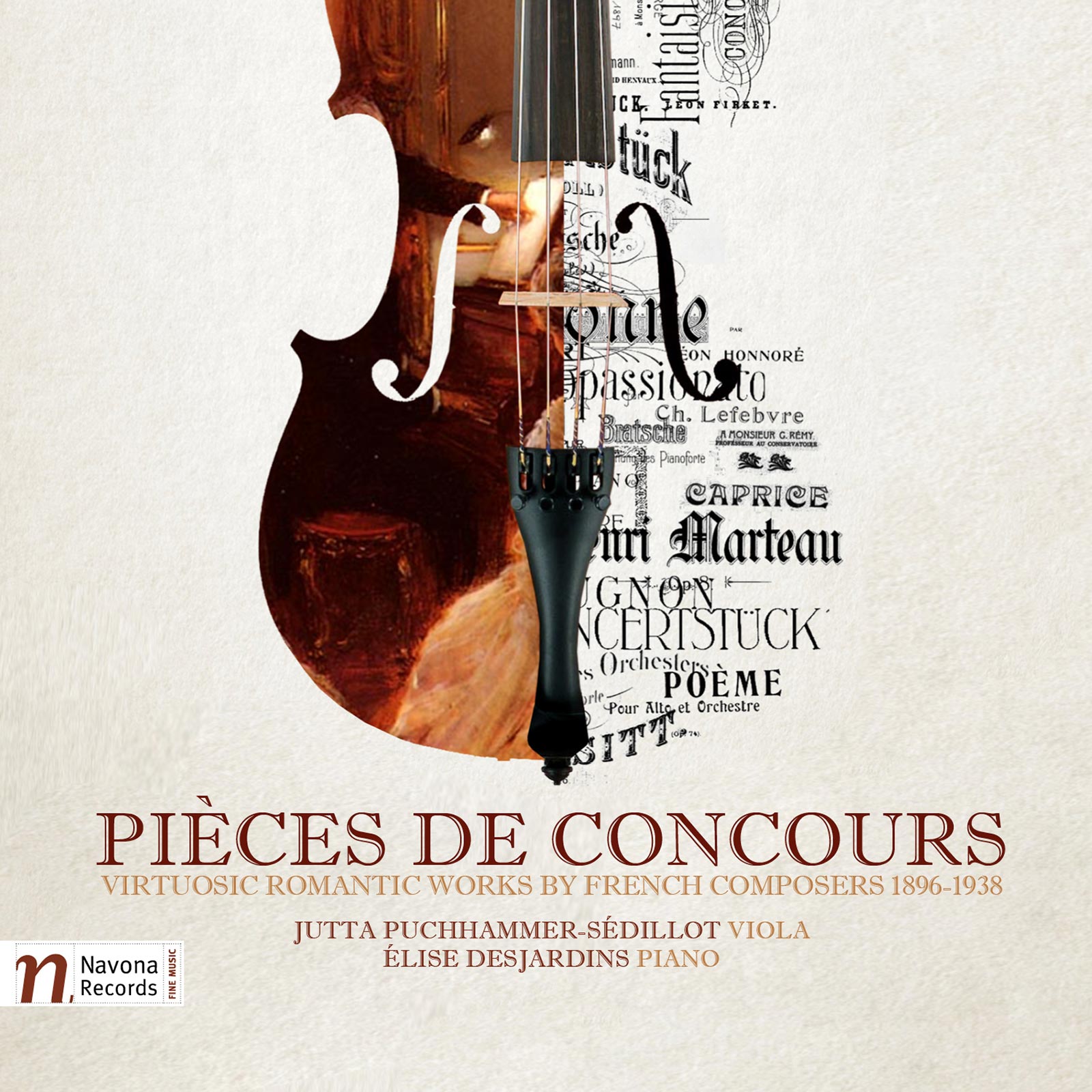Pas de Trois
Catalog #: NV6680
Release Date: March 21, 2025
20th CenturyRomanticChamberOboePianoViolaViolinPAS DE TROIS explores the possibilities of unique instrumental combinations for oboe, violin, viola, and piano within the intimacy of chamber music. The title work, Pas de Trois, is a playful yet challenging neo-romantic work featuring Ned Rorem’s lyrical melodies and a tonal language all his own, blending American boldness with French influence. Hans Gál’s Trio for Oboe, Violin, and Viola, Op. 94 is a lush late-Romantic work and an homage to his beloved adopted home, Scotland. The final piece, Dorothy Howell’s Air, Variations and Finale features exquisite, expressive phrasing and intricate interplay between the three solo instruments.
Charm, Passion, And Acrobatics
Catalog #: NV6434
Release Date: June 10, 2022
RomanticChamberPianoViolaThe story of Misha Galaganov’s CHARM, PASSION, AND ACROBATICS began when the artist uncovered a trove of forgotten, 19th century viola music in a private library. The music on this album from composers Pierre Kunc, Désiré-Émile Inghelbrecht, and Ernest Chausson has long gone unplayed; Kunc’s musical manuscripts, for example, were kept under lock and key by the Society of Authors, Composers and Publishers of Music until 2021. Featuring challenging virtuosic pieces alongside expressive, impressionistic masterworks, this album celebrates the boundless potential of the viola. The music transports the listener to a French salon of the Belle Époque, guided by Galaganov and Owings’ sensitive and technically-masterful performances.
Pièces De Concours
Catalog #: NV6065
Release Date: November 18, 2016
RomanticChamberPianoViolaViolist Jutta Puchhammer’s album PIÈCES DE CONCOURS POUR is a treasure trove of late romantic French viola music. Originating as exam compositions for students enrolled at the Conservatoire Supérieur de Paris from 1896-1938, this album demonstrates Puchhammer’s peerless virtuosity as a performer, as well as the expressive range of her instrument, which was largely dismissed by the mainstream of eighteenth and nineteenth century composers.
Instrumentaion: Viola
©2025 Navona Records. All rights reserved. Website by PARMA Recordings. | Privacy Policy



